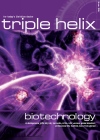Herceptin is a big issue. Google brings up a staggering one million hits. It features prominently in the media as well as filling the medical literature; but also raises issues that we as Christian doctors need to face. As we enter the increasingly complex days of 21st century healthcare we need to look to the Lord who gives wisdom generously to those who ask for it.[1]
What is Herceptin?
Herceptin (Trastuzumab) is an antibody directed against HER2, a protein over-expressed in approximately 25% of primary breast cancers and associated with a poorer prognosis.[2] Currently licensed (and NICE approved) for use in metastatic disease,[3] the recent media frenzy surrounds the use of Herceptin in early breast cancer, In order to reduce the risk of recurrence. Recent studies have shown up to a 50% reduction in disease recurrence, making Herceptin one of the most significant developments in breast cancer management in recent years.[2]
The major issues with the use of adjuvant Herceptin are cost and concerns over its cardiac tolerability - a factor because HER2 is also expressed in cardiac muscle. It has been estimated that the cost per woman for 12 months treatment with Herceptin will be £21,800.[4] Currently unlicensed, not NICE approved, and not funded on the NHS, those who have succeeded in getting the drug make the headlines. Elaine Barber is one such woman. North Stoke Primary Care Trust initially rejected her appeal to have the drug due to the fact that its safety and cost effectiveness had not yet been confirmed. However the trust reversed its decision after Patricia Hewitt, the Health Secretary intervened.[5]
HER2 testing
The NHS is responsive to demand and does not seek out undisclosed need.[6] It is not yet standard practice to test all new cases of breast cancer for HER2 [7] and pathology services are concerned that the funds will not cover routine testing. Many clinicians test only if the patient requests it. However studies have found that nearly 4 out of 10 people with cancer don't know what questions to ask about their treatment options.[8] A recurring theme in the Bible is the defence of the disadvantaged and we should be ensuring equality of care, possibly offering testing to all. As a result of campaigning by cancer charities, it is now routine in England.[9]
Allocation of resources
Some form of rationing exists for almost everyone, either by ability to pay or by queuing for a share of the limited service to which everyone has access.[6] One could take a utilitarian view of resource allocation and argue that spending this much money on a subset of breast cancer patients, only half of whom may benefit, is wrong.[10]
This utilitarian view is the philosophical basis for most economics. The fundamental tenet is that resources should be allocated in the most efficient manner possible, maximising the benefits to society from the resources available. But Jesus seems to have had a different approach. Again and again in his healing ministry he responded to individual pleas for help.
It has been claimed that 'glamorous'specialities, like oncology, are using public support to gain extra funding, and in doing so are actively preventing the equitable distribution of limited resources.[6]
So should doctors get involved in these matters of social policy? Is this the role of administrators and politicians? Apart from our expertise and knowledge being needed we are already making these decisions and it can be argued that we should not be doing so in isolation and away from public scrutiny. Jesus encourages submission to the civil power[11] and we are told to submit to the 'governing authorities'.[12] So maybe we should be accepting directives issued by the government, even when we disagree, as long as it does not contravene explicit biblical commands.[9] On the other hand in a democracy we all have a right and responsibility to express our concerns.
Truth telling
The sick do not come to us in order that we may make all their decisions, or in order that we may run their lives for them. Patients want truthful, accurate information. They want an opportunity to make choices about the various treatment options available and failures in communication about illness and treatment are the most frequent source of patient dissatisfaction.[13] These issues are more pertinent than ever in the case of Herceptin. It is currently unlicensed and we do not have the long-term safety data on the drug, particularly in relation to the cardiac side effects. As Christian doctors we should ensure we are giving our patients both sides of the story.
Jesus said 'I am the Truth'.[14] As Christians we have a right and a responsibility to question the claims made by the media and drug companies. We need to protect the weak and vulnerable, in this case the breast cancer patient.
































